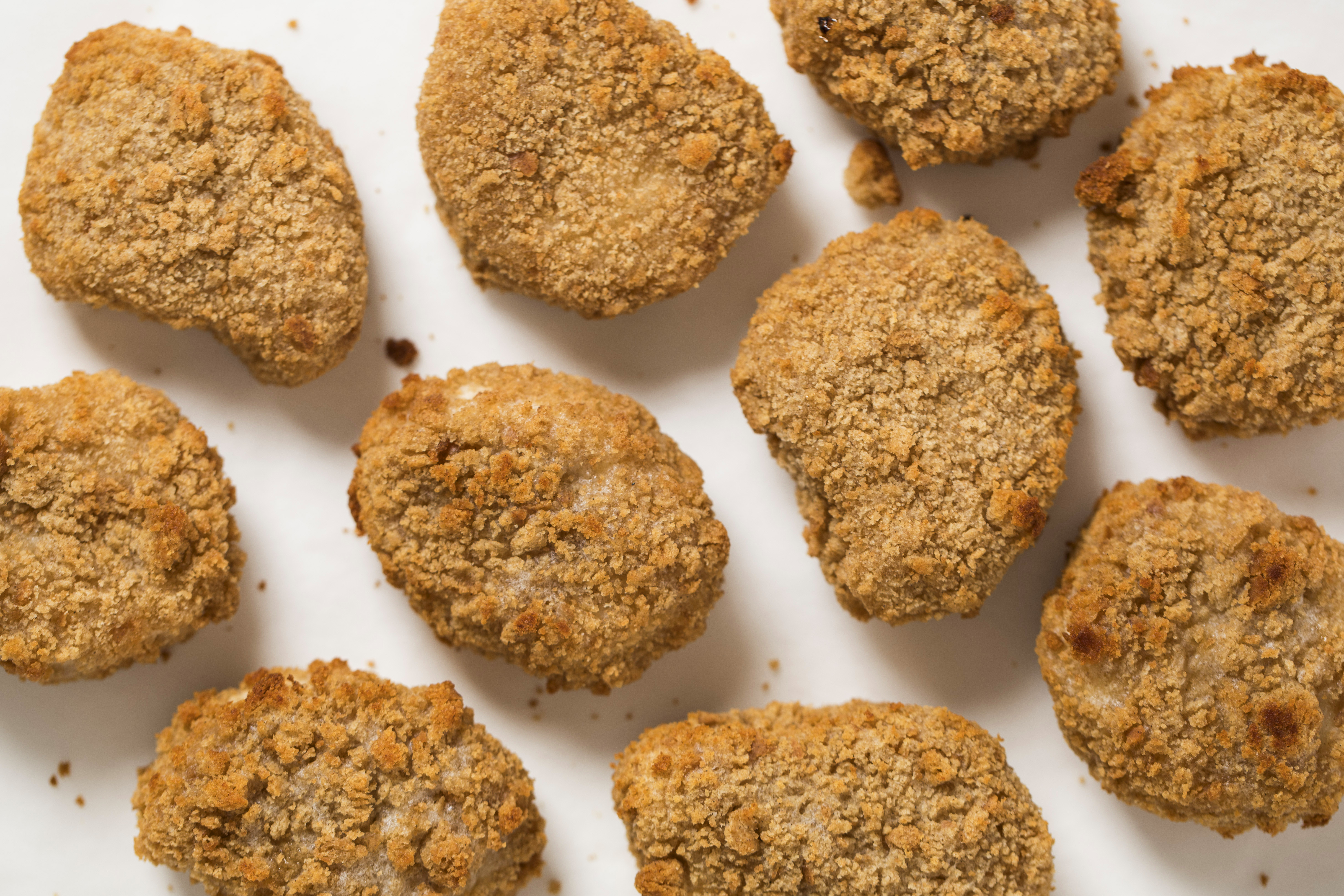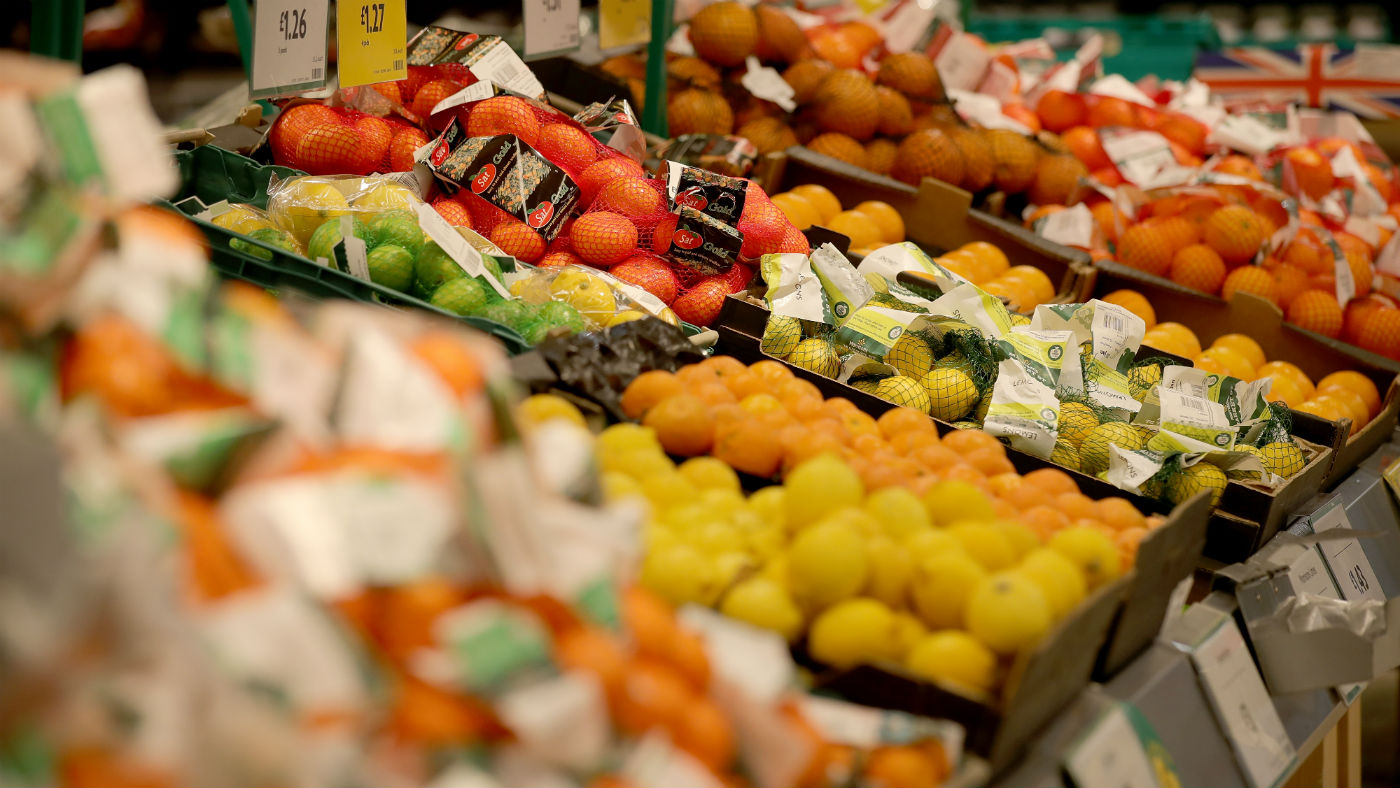What is gluten and should it be avoided?
As more and more people go gluten-free, doctors warn that 'fad' diets could be nutrient-deficient

A free daily email with the biggest news stories of the day – and the best features from TheWeek.com
You are now subscribed
Your newsletter sign-up was successful
Gluten has been an essential part of the human diet for thousands of years, but an increasing number of people are no longer eating it as they believe it is damaging their health.
The gluten-free market is said to be growing fast, with the “free-from” grocery market worth more than £800m and expected to grow by a further 50% by 2021, reports Talking Retail.
The demand for gluten-free products has "exploded", says The Guardian. "Alarmist, bestselling diet books have linked gluten to autism, depression, Alzheimer's, multiple sclerosis and diabetes, among others," it adds.
The Week
Escape your echo chamber. Get the facts behind the news, plus analysis from multiple perspectives.

Sign up for The Week's Free Newsletters
From our morning news briefing to a weekly Good News Newsletter, get the best of The Week delivered directly to your inbox.
From our morning news briefing to a weekly Good News Newsletter, get the best of The Week delivered directly to your inbox.
Famous faces including Gwyneth Paltrow, Russell Crowe and Bill Clinton have all dabbled in gluten-free diets over the years.
"Gluten is to this decade what carbohydrates were to the last one and fat was to the '80s and '90s: the bete noir, the bad boy, the cause of all that ails you - and the elimination of which can heal you," says Time magazine.
However, doctors warn these diets often lack essential nutrients and shouldn't be adopted by everyone. Removing such an ingredient often requires replacing it with something else, which in some cases means taking out protein and fibre and adding sugar and sodium.
Here's what you need to know:
A free daily email with the biggest news stories of the day – and the best features from TheWeek.com
What is gluten and where is it found?
Gluten is the name of the composite protein present in wheat, rye and barley and their various cross-breeds. Millions of people suffer from a negative reaction to gluten, including those suffering from coeliac disease.
Foods that contain gluten include bread and baked goods, pizza, french fries, pasta, soups, sauces and some vitamins, supplements and medications. The Celiac Disease Foundation advises anyone with gluten intolerance to check labels carefully as gluten is often hidden or present in unexpected ways.
What is coeliac disease?
Coeliac disease is neither a food allergy nor an intolerance, but a serious autoimmune disease that affects one in 100 people in the UK, according to Bupa.
Symptoms include chronic diarrhoea, abdominal pain, weight loss, fatigue and joint pain. Gluten triggers an immune response that causes damage to the intestines, leaving people unable to absorb the required vitamins and nutrients from food, which can be life-threatening. If left untreated it can also cause infertility, osteoporosis and bowel cancer.
The disease affects women more than men and can affect people of all ages, but usually begins in infancy. It requires a blood test and an endoscopic biopsy of the small intestine in order to diagnose. There is no known cure and the best treatment is to follow a life-long gluten free diet.
But a new study has warned that many of the “gluten-free” diet foods still contain more gluten than the recommended 10mg a day for coeliac sufferers.
A February study in the American Journal of Clinical Nutrition looked at gluten exposure detected by two new tests, one for urine and the other for stool. The tests detect molecules of gluten that make it through the digestive tract intact in all of us.
The study, which looked at data on individuals from two different clinical programmes, found on average the amount of gluten consumed on a supposedly gluten-free diet was 244mg (by stool analysis) or 363mg (by urine analysis).
“This study reflects what many coeliacs experience in real life,” says analytical chemist Jennifer Sealey-Voyksner, one of the study's authors. “I was diagnosed with coeliac in the early 2000s and, even on a gluten-free diet, I was still getting sick. I began to actually analyse my own food using mass spectrometry techniques, and I found out that some of the gluten-free pastas I was eating, and even a body wash I was using, contained gluten.”
The results “go a long way toward explaining the decades of reports showing that somewhere between 30% and 50% of patients with celiac disease and on a gluten-free diet still have damaged intestines that have not fully recovered”, says NPR. (https://www.npr.org/sections/thesalt/2018/04/03/598990638/when-going-gluten-free-is-not-enough-new-tests-detect-hidden-exposure)
Cases have increased more than fourfold in the past 60 years, according to the New Yorker. "Researchers initially attributed the growing number of cases to greater public awareness and better diagnoses," it says. "But neither can fully account for the leap."
What is non-coeliac gluten sensitivity?
Millions of people who don't have coeliac disease still experience negative symptoms after consuming foods containing gluten. Gluten intolerance occurs when a person's immune system responds abnormally when gluten is broken down in the digestive system, which can cause uncomfortable symptoms such as abdominal pain, bloating and heartburn.
How do you know if you have it?
There are no specific diagnostic tests for non-coeliac gluten sensitivity. "I have found that eliminating gluten for a few weeks and gradually reintroducing it is the best way to assess your body's response to gluten and determine your own gluten threshold," Dr Arthur Agatston told CNN.
What do doctors say?
While giving up gluten may be "fashionable", a genuine illness is rarely to blame, according to NHS experts.
Some healthcare professional are concerned that people going on gluten-free diets without needing to could be damaging their health, as some gluten-free foods lack the required nutrients.
"Some people find certain foods are simply hard to digest and wheat appears to be one of those," says Isabel Skypala PhD, a specialist allergy dietitian.
Unless a person has coeliac disease, it is unlikely they will need to lead a completely gluten-free lifestyle and may benefit from simply cutting down on the amount of gluten containing food they eat.
People often go gluten-free because they feel tired, bloated or depressed and find that it results in feeling better or losing weight, dietitian Katherine Tallmadge, R.D. writes for the Huffington Post.
"But that outcome is more likely because they've cut out the excess calories found in many flour-based snack foods, and they mistakenly attribute feeling better to taking out the gluten," she says.
Always consult your GP before making major changes to your diet.
-
 At least 8 dead in California’s deadliest avalanche
At least 8 dead in California’s deadliest avalancheSpeed Read The avalanche near Lake Tahoe was the deadliest in modern California history and the worst in the US since 1981
-
 Political cartoons for February 19
Political cartoons for February 19Cartoons Thursday’s political cartoons include a suspicious package, a piece of the cake, and more
-
 The Gallivant: style and charm steps from Camber Sands
The Gallivant: style and charm steps from Camber SandsThe Week Recommends Nestled behind the dunes, this luxury hotel is a great place to hunker down and get cosy
-
 Is your diet killing you?
Is your diet killing you?In Depth New research suggests eating ‘ultra-processed’ foods may increase risk of early death
-
 Sacked charity worker claims he is victim of anti-vegan discrimination
Sacked charity worker claims he is victim of anti-vegan discriminationSpeed Read Jordi Casamitjana is seeking to have ethical veganism declared a ‘philosophical belief’ under Equality Act
-
 Is modern life raising our blood pressure?
Is modern life raising our blood pressure?Speed Read Study of remote communities in Venezuelan rainforest sheds fresh light on hypertension
-
 Mediterranean diet ‘may cut risk of depression by a third’
Mediterranean diet ‘may cut risk of depression by a third’Speed Read New research suggests link between eating habits and mental health
-
 Middle-aged drinkers ‘should have more alcohol-free days’
Middle-aged drinkers ‘should have more alcohol-free days’In Depth Days of abstinence each week would improve sleep and reduce risk of heart disease and cancers
-
 Adopting Mediterranean diet in later life may postpone death
Adopting Mediterranean diet in later life may postpone deathIn Depth New study finds people aged 65 or older who adhere to diet rich in fish, nuts and fresh vegetables have 25% lower risk of death
-
 What is a low-carb diet and is it healthy?
What is a low-carb diet and is it healthy?Speed Read Researchers find that diets that are low – and high – in carbohydrates could knock years off people’s lives
-
 The best diet plan for marathon training
The best diet plan for marathon trainingSpeed Read Complex carbohydrates and simple diet changes could be the secret to setting your personal best